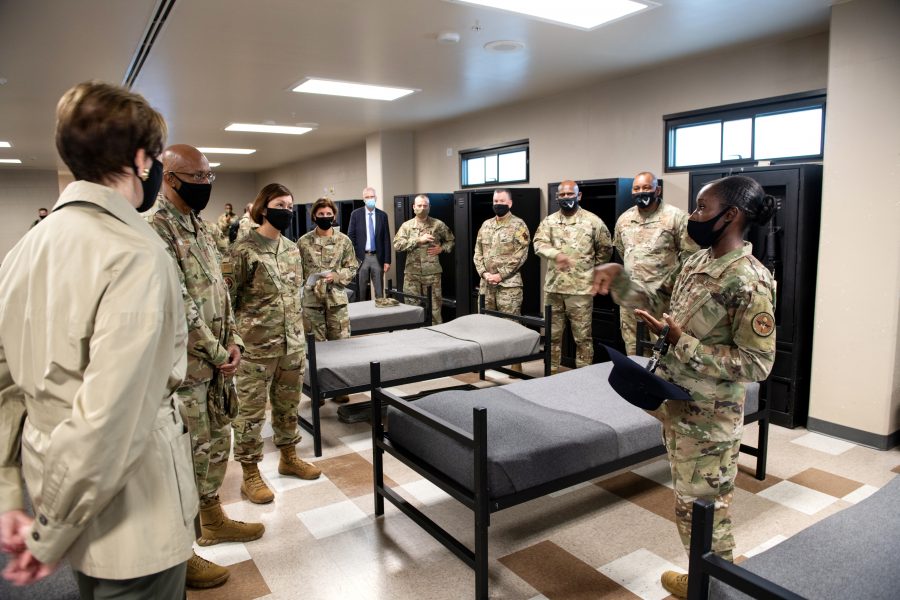Airmen, from basic military training through graduate studies at Air University, need to increase their study and understanding of potential adversaries, such as China and Russia, to better understand the Air Force’s place in the world and the risk of potential conflicts, the service’s senior uniformed leaders said.
All leaders, from first-line supervisors to commanders, need to be able to talk to their Airmen “and go, ‘Here’s what you’re doing, and why it’s important,’” Chief of Staff Gen. Charles Q. Brown Jr. said Sept. 16 during the Air Force Association’s virtual Air, Space & Cyber Conference. “You start talking about great power competition, we need to understand what our adversary thinks.
“We can count the number of platforms, [but] we need to understand how they think. What makes them tick? What drives their intent? … I’m challenging myself, I’m challenging the entire Air Force, that we’ve got to be able to talk about this because it helps us to understand the risks that we as a nation are incurring.”
Brown’s “Accelerate Change or Lose” white paper, released shortly after he took office, said the service needs a “deep institutional understanding” of China and Russia, and must be able to retain Airmen who understand the threat and have attributes “necessary for success.”
He told reporters at vASC that this will start as early as basic military training, so Airmen of all Air Force Specialty Codes understand their jobs and how they can contribute.
Brown said USAF needs to make sure it addresses the threats when Airmen first enter the service and explain: “Here’s why we do this, and how you connect, and why you’re going to deploy to a certain location, and why you go to this certain exercise,” he said.
Such conversations will extend through professional military education, including noncommissioned officer academies and Air University courses.
In his previous job as commander of Pacific Air Forces, Brown encouraged all Airmen to read the Pentagon’s National Defense Strategy. The 14-page document “is not that much reading, but it gives you a sense of … what we’re doing, what we’re thinking about, and so, the more senior you get, the more you need to step back and start thinking about this,” he said.
The Air Force is still evaluating what PME will look like in the future, as the COVID-19 pandemic has changed how it operates, Chief Master Sergeant of the Air Force JoAnne S. Bass said. More courses are online, but the service is still looking through data and lessons learned before it decides what role virtual learning will play in the future.
“There are some things that COVID has allowed us to be able to do, and do really quickly, that are more effective than pre-COVID,” she said. “And so we need to stick with those things, but the jury’s out on the PME piece. There is a certain goodness that you get on face-to-face, being around other people, being around different tribes, and doing that.”
